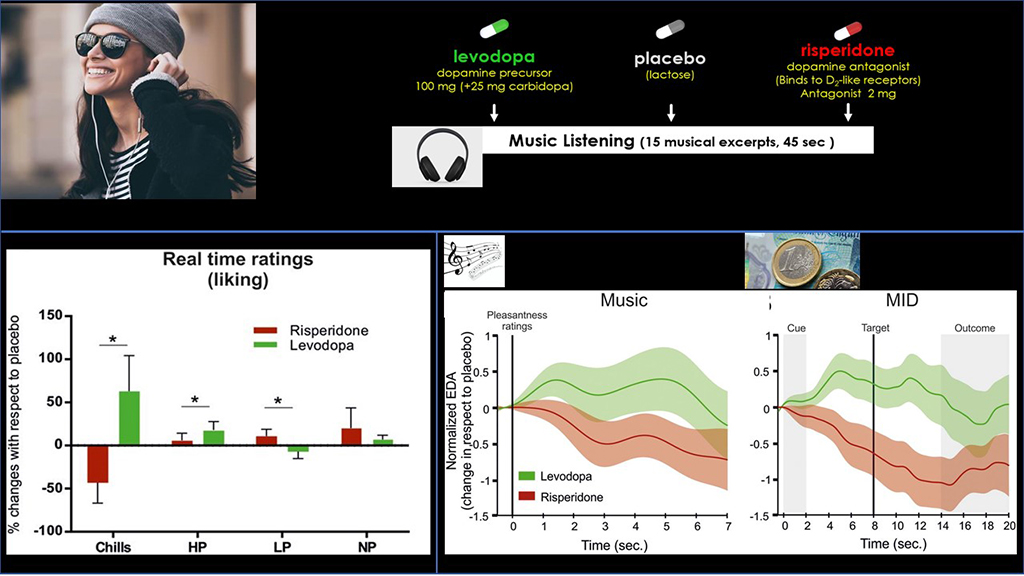The present study shows for the first time a causal role of dopamine (a neurotransmiter involved in the regularion of reward experiences) in musical pleasure and motivation: enjoying a piece of music, deriving pleasure from it, wanting to listen to it again and be willing to spend money for it. Researchers manipulated the dopaminergic synaptic availability for the participants (27 volunteers) using a pharmacological design. In three different sessions, separated by one week at least, reserchers orally administrated to each participant a dopamine precursor (levodopa, which increases dopaminergic availability), a dopamine antagonist (risperidone; to reduce dopaminergic signaling), and placebo (lactose; as a control). The authors indirectly measured changes in pleasure using electrodermal activity, which is a very sensitive technique to evaluate emotional changes (i.e., in this case, the hedonic impact of music). Participants provided subjective ratings of the experienced pleasure (real time ratings and general pleasure ratings provided after each song). Importantly, motivational responses were measured by asking participants how much of their own money they were willing to spend for each song.
The results showed that while the dopamine precursor levodopa increased the hedonic experience to music and motivational responses, such as willingness to purchase a song, the dopamine antagonist risperidone led to a reduction of both.
These results shed new light on the neurochemistry underpinning music reward, contributing to the fervid and open debate on the nature of abstract human pleasures. These findings challenge previous evidence conducted in animal models, where dopaminergic manipulations showed a clear role of dopamine in motivation and learning, but a controversial function in regulating hedonic responses in primary rewards (e.g. food), which has been mainly related to opioids release. These results indicate that dopaminergic transmission in humans might play different or additive roles than the ones postulated in affective processing, particularly in abstract cognitive activities such as music listening.
Reference
